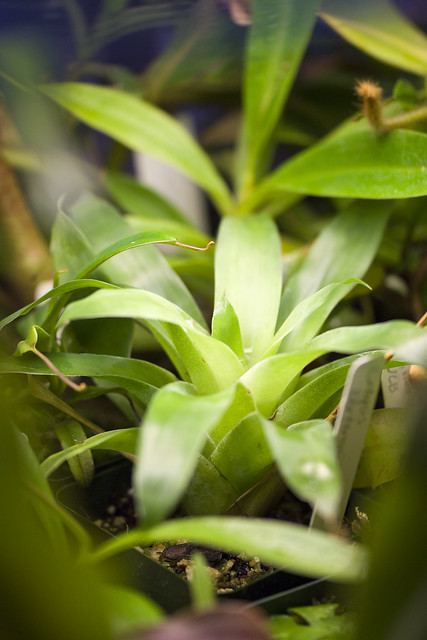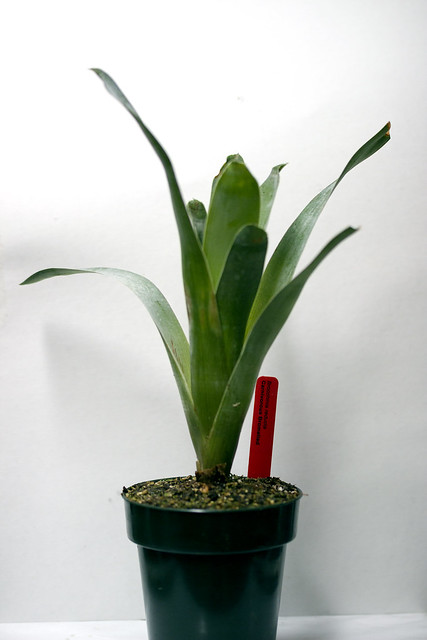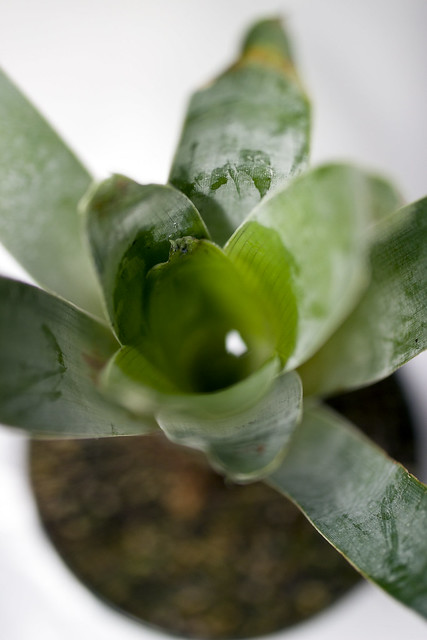Tropical plant enthusiasts should already be familiar with bromeliads. These neotropical monocots form an incredibly diverse group, from the popular air plant genus Tillandsia to the economically important pineapple, Ananas comosus. The archetypal bromeliad in many horticulturalists’ minds, however, are the tank bromeliads. Here, a rosette of leaves creates areas where rainwater is impounded in a central tank and/or leaf axils. While this strategy is important for epiphytes that need to conserve water high in trees, it also effectively creates a pitcher of sorts.

Of the thousands of tank bromeliads, only three are considered truly carnivorous – Brocchinia reducta, Brocchinia hechtioides, and Catopsis berteroniana. For more on their natural history and study of their carnivory, Stewart McPherson wrote an excellent piece on bromeliad carnivory for the Florida Council of Bromeliad Societies that can be found here.
I have always been fascinated by the carnivorous bromeliads, although they are difficult to find stateside. I grew Brocchinia reducta when young, but lost the plant over a cold winter. A few retailers have offered plants recently, so I once again have some of these fascinating plants.
My Catopsis was sold as Catopsis berteroniana two years ago, but it doesn’t key well to that species – allegedly, C. berteroniana usually produces a single pup after flowering, and mine produced three. C. berteroniana also has more upright leaves and more copious wax than my plant (although the authority Palací notes that vegetative morphology alone can’t be used for specific identification). I’ll have to wait until it flowers again and find the keys to the species to be sure.
This good-sized Brocchinia reducta is a welcomed new acquisition. Hopefully, summering it outdoors with my Sarracenia will give it a tighter rosette characteristic to the species. We’ll see how changes by the end of summer.

